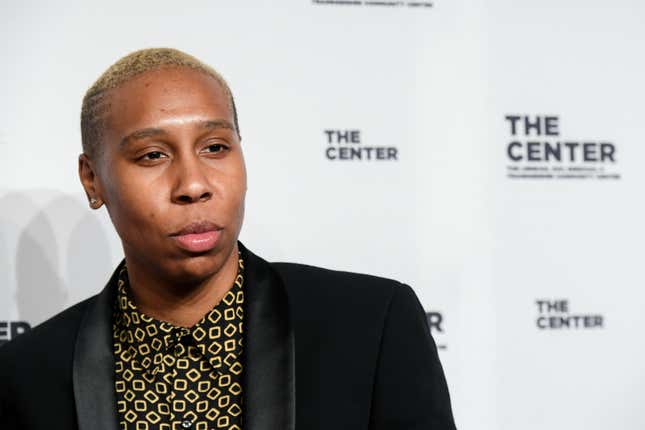
As Lena Waithe’s star continues to rise, she’s taken her responsibility as a black filmmaker seriously. Not only does she make it a point to create opportunities for other deserving black creatives, but she holds other Hollywood veterans in positions of power to do the same.
Despite our unquestionable talent, financing is one of the biggest challenges black creators face. So in a recent interview with the New York Times, the Queen & Slim scribe shared her thoughts on whether or not she believes some of black Hollywood’s elite adequately supports its own.
“And don’t get me started on black financiers! How many of those do we have?” she said. “I’m not [going to name] names because I know better, but there are some very big black movie stars out there, and they could pay for two or three or even five small independent movies to get made by black directors and black writers. Let me give you two movies that are very important to the black community: Moonlight and 12 Years a Slave. Whose production company put those out?”
The answer would be Brad Pitt, whose production company Plan B was also behind Ava Duvernay’s Selma, Barry Jenkins’ brilliant adaptation of If Beale Street Could Talk and Joe Talbot’s moving The Last Black Man in San Francisco.
“Wasn’t Denzel [Washington]. Wasn’t Will Smith,” she continued. “You won’t catch me making $20 million a movie and not paying for at least four or five independent movies a year. I do give credit to [director and producer] Ava [DuVernay] for trying to build something that hasn’t been built before, but that’s a lot on Ava’s back.”
She added, “I’m over here trying to build a community, and I don’t see other people doing it. I really do feel like there’s a way for us to change the movie business from the inside out, but we’re all in our own silos doing our own thing.”
And she’s right. It’s much easier to create change as a cohesive unit than working individually toward the same goal. But Waithe isn’t beyond critique herself, as the debacle surrounding Jason Mitchell—the former star of her show The Chi who was dropped due to sexual misconduct allegations —proved that there’s still much work to be done in protecting black women in Hollywood.
Which was something Twitter users were quick to point out after her interview surfaced:
The rest of the interview touches on how the success of Jordan Peele’s Get Out created a paradigm shift in Hollywood, white critics being afraid to pan bad black movies and other issues the 35-year-old has with the entertainment industry. It’s a beautifully transparent read, so if you have the time to do so, definitely check it out.

